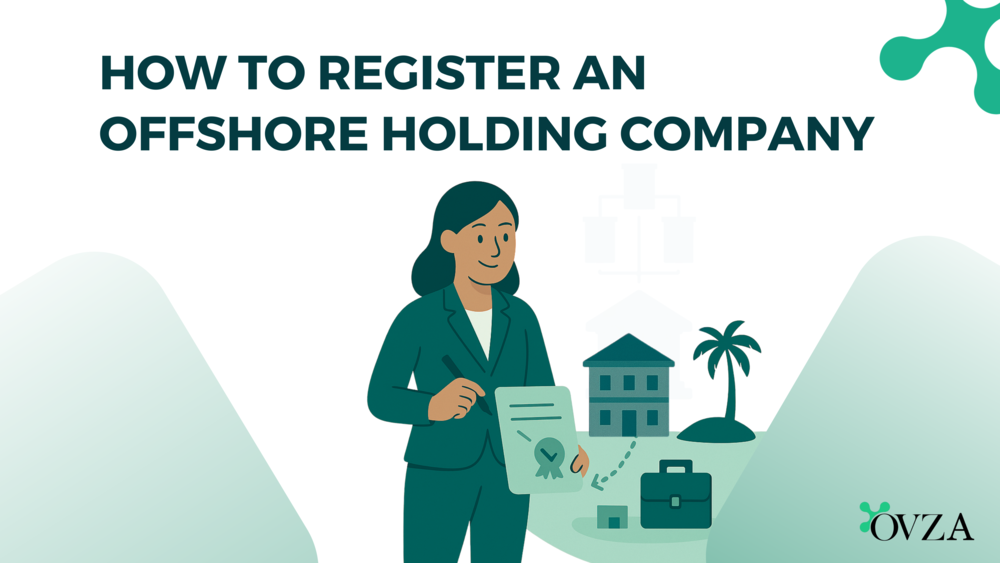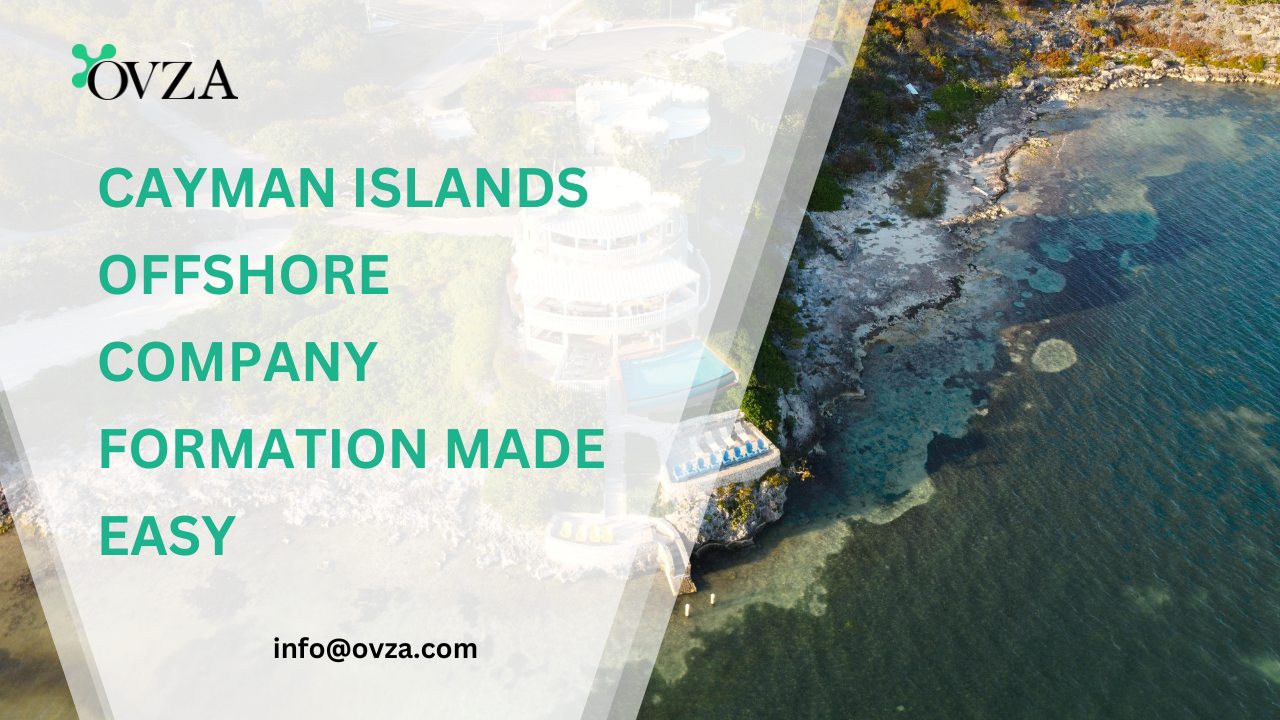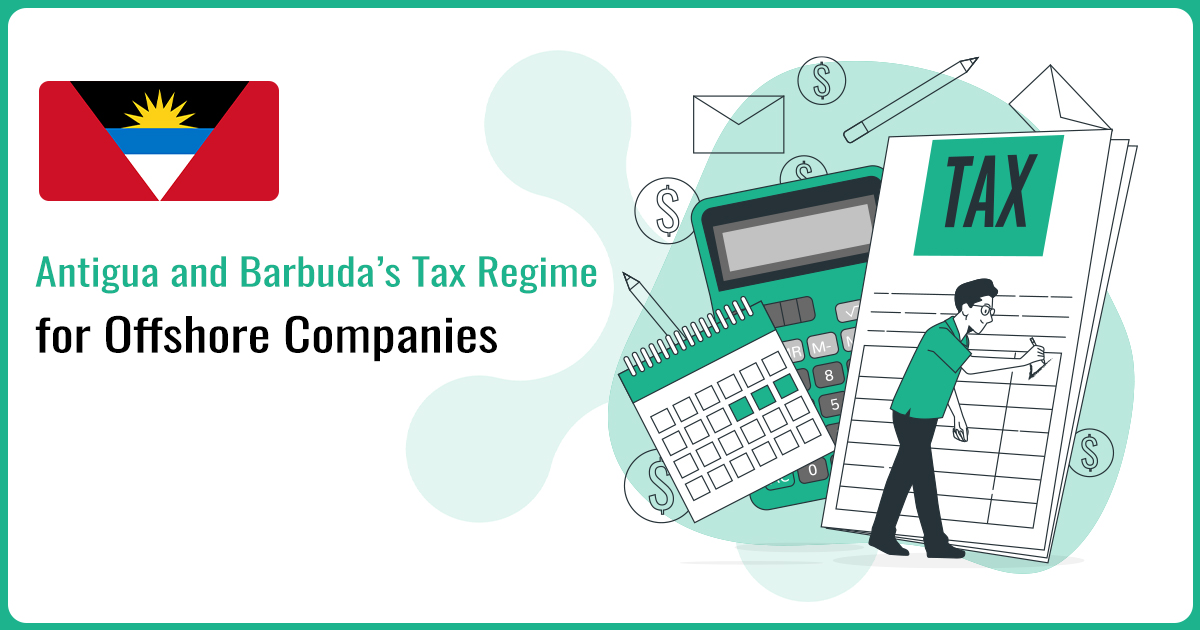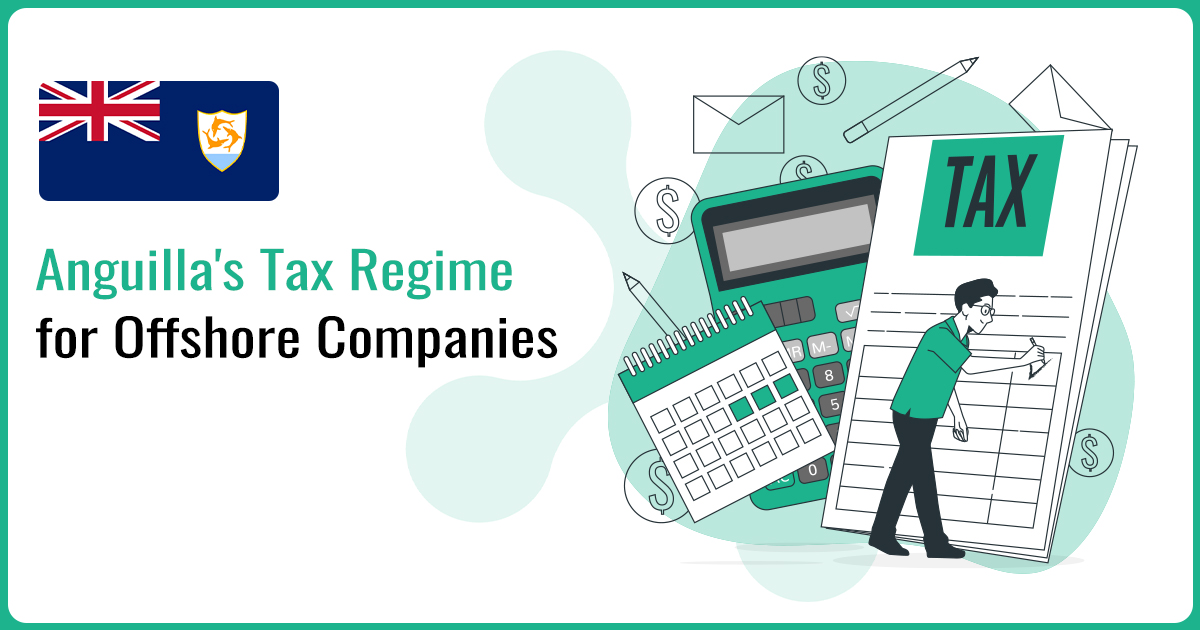Registering an offshore holding company is an effective way to manage international assets under a legally recognized and tax-neutral structure.
Unlike operational companies, holding entities are built to own shares, property, or IP—not to generate income through direct trade. When based offshore, they offer strong legal separation between owners and assets, reducing liability while optimizing international control. Whether you’re a startup founder with investors across borders or an established entrepreneur consolidating assets, this structure offers both flexibility and protection.
Why Use an Offshore Holding Company?
The core purpose of an offshore holding company is to simplify ownership and protect value. Rather than owning shares or intellectual property in your personal name—or spreading corporate ownership across different domestic entities—you can centralize control under one legally protected, tax-efficient offshore company.
This structure helps reduce tax leakage, limits liability in case one subsidiary faces litigation, and ensures that asset transfers (like selling shares in an operating company) can be done at the holding level, often free from capital gains tax depending on the jurisdiction. Offshore holding companies are also frequently used in international estate planning and succession structures due to their flexibility in issuing shares, appointing nominees, and layering trusts.
Choosing the Right Jurisdiction
One of the most important steps in learning how to register an offshore holding company is selecting the correct jurisdiction for your goals. While many offshore centers offer low or zero tax, only a few provide the legal infrastructure, reputation, and flexibility needed to manage international holdings effectively.
Key considerations include whether the jurisdiction taxes passive income, whether it has public disclosure requirements, and how easily its companies are accepted by foreign banks and legal systems. Some jurisdictions, such as the British Virgin Islands and the Cayman Islands, are recognized globally for investment structures and holding vehicles. Others like Belize and the Marshall Islands offer greater privacy with lower annual maintenance costs, though may have slightly less international banking access.
The right jurisdiction depends on what you are holding. If it’s shares in a UK startup, a BVI company might be most appropriate. If it’s real estate in Dubai, a jurisdiction with strong nominee protections and no reporting requirements—like Nevis or Belize—could be more suitable.
The chart below outlines what each jurisdiction is best known for as a holding company location:
| Region | Jurisdiction | Known For |
| The Americas | Anguilla | Low-cost, flexible company structures |
| Antigua and Barbuda | Confidentiality and government incentives | |
| Bahamas | Strong financial services sector | |
| Belize | Fast incorporation, strong privacy laws | |
| British Virgin Islands (BVI) | Global reputation, preferred for investment holding | |
| Cayman Islands | No direct taxes, highly regarded by institutions | |
| St. Kitts & Nevis | Excellent asset protection framework | |
| St. Vincent & the Grenadines | Affordable and discreet for simple holding use | |
| Asia Pacific | Marshall Islands | Flexible IBC law, good for re-domiciliation |
| Samoa | Robust trust and foundation laws | |
| Africa | Seychelles | Cost-effective, zero tax on foreign-sourced income |
How the Incorporation Process Works
Once you’ve chosen the right jurisdiction, the next step is to incorporate the offshore holding company. While each jurisdiction has its own corporate registry and procedures, the general process is similar across most reputable offshore centers.
The first stage is selecting a company name and confirming its availability with the registrar. Most jurisdictions require that the name include a suffix like “Ltd.” or “Corp.” to indicate its limited liability status. After name approval, incorporation documents are prepared, usually including the memorandum and articles of association, appointment of the director(s), and details of the initial shareholder(s).
You’ll need to submit certified copies of personal identification documents, a proof of address, and in many cases, a basic business plan or description of intended activities—even if the company itself won’t trade. These documents are used to satisfy local Know Your Customer (KYC) and Anti-Money Laundering (AML) rules, which are standard across legitimate offshore jurisdictions.
A local registered agent is usually required to handle filings and serve as the intermediary between the company and the government. At OVZA, we act as your registered agent in most jurisdictions, streamlining the process and reducing delays.
Most offshore holding companies can be formed within 2 to 5 business days. In urgent cases, same-day or next-day express services are available depending on the jurisdiction. Once formed, the company receives a certificate of incorporation and standard formation documents, which can then be used to open bank accounts or transfer asset ownership into the new entity.
Structuring Ownership and Control
A key benefit of offshore holding companies is the ability to design a structure that separates legal control from beneficial ownership. This is particularly useful for asset protection, estate planning, or shielding sensitive relationships between investors and underlying entities.
Ownership can be structured in several ways—either in your personal name, via a nominee shareholder, or through a trust. In some jurisdictions, bearer shares are also permitted, although these are increasingly regulated or phased out in line with global compliance standards.
You can appoint a nominee director to act on behalf of the company while retaining ultimate control through internal agreements such as power of attorney or shareholder resolutions. This ensures operational flexibility while preserving confidentiality in jurisdictions that don’t publish corporate registers.
We guide clients through these arrangements carefully, ensuring that the structure complies with local law while achieving the privacy or estate planning objectives they have in mind. It’s essential that these layers are implemented legally, transparently, and with documentation to support genuine beneficial ownership in case of banking or regulatory inquiries.
Opening a Bank Account for an Offshore Holding Company
Once the offshore holding company is registered, the next step for many clients is opening a corporate bank account. Although holding companies usually do not operate as trading entities, an account is still important for receiving dividends, transferring funds between subsidiaries, or holding capital reserves.
Bank account approval often depends on the jurisdiction of incorporation, the clarity of ownership structure, and the business rationale. Reputable jurisdictions like the British Virgin Islands or Cayman Islands tend to receive fewer compliance hurdles than lesser-known territories. Banks typically request identification documents, proof of beneficial ownership, and a description of the assets or investments the company will hold.
At OVZA, we maintain relationships with banking partners in the Caribbean, Asia, Europe, and the Middle East who accept offshore holding structures. For clients using our full setup packages, we also facilitate introductions to banks that support non-resident directors and multi-currency accounts.
Annual Maintenance and Legal Compliance
Offshore holding companies require minimal maintenance compared to operating companies. In most jurisdictions, there is no requirement to file annual tax returns, financial statements, or undergo audits if the company earns no local income.
Basic compliance typically includes paying an annual government renewal fee, maintaining a local registered agent, and ensuring that internal records are kept up to date—especially if nominee structures or layered trusts are used. While offshore jurisdictions offer privacy, owners should still be prepared to demonstrate control if required by banks or during due diligence checks.
For long-term compliance, it is also wise to retain copies of key resolutions, trust agreements (if applicable), and proof of asset transfers into the company. These records strengthen legal protection and make international operations easier to manage.
Conclusion
Offshore holding companies remain one of the most effective legal structures for managing cross-border ownership, preserving asset security, and simplifying complex international business interests. When set up properly in a reputable jurisdiction, they offer tax neutrality, risk isolation, and operational efficiency—without the burdens of public disclosure or heavy compliance.
Whether you’re consolidating global investments, managing family wealth, or separating risk between entities, a holding company provides a stable legal foundation for long-term international strategy. At OVZA, we assist clients through every stage of the process—from jurisdiction selection and incorporation to nominee structuring and offshore banking.
If you’re ready to structure your holdings internationally with confidence and discretion, contact us today to explore the best options for your needs.
Disclaimer: The information provided on this website is intended for general reference and educational purposes only. While OVZA makes every effort to ensure accuracy and timeliness, the content should not be considered legal, financial, or tax advice.













